In the quiet solitude of the living room, she found solace, forsaking the bedroom’s embrace for the familiar contours of the couch. Nights stretched endlessly as she patiently awaited her husband’s return from the toils of work, eager to share in his triumphs and shoulder his burdens.
The clock would tick past midnight, and the dawn would break all too soon, but Nicole Hazen never faltered in her resolve to stay awake for her beloved husband, Mike, the esteemed general manager of the Arizona Diamondbacks.
“Her unwavering presence,” Hazen reminisced, his eyes brimming with emotion, “brought me immeasurable joy whenever we emerged victorious.”
This is the tale of a grief-stricken baseball executive, whose heart has been uplifted by the resounding success of his team’s postseason campaign. Merely 14 months since the untimely loss of his beloved wife to a relentless form of brain cancer at the tender age of 45, Mike Hazen’s journey serves as a poignant subplot to the unfolding World Series duel between the D-backs and the Rangers. As the series reaches its climactic Game 3 at Chase Field, deadlocked at 1-1, the sight of Hazen, 47, pacing his suite with bated breath, his focus fixated on every pitch, carries an added weight when one comprehends the depth of his personal tribulations and ongoing struggles in raising four teenage sons who yearn for their departed mother. Each triumphant celebration, drenched in perspiration and champagne, enfolded in the embrace of steadfast friends with whom he has toiled side by side for years, bears a sweeter taste in the mouth of a man who has endured as much as Mike Hazen.
Yet, this is merely the first half of an enthralling narrative that unfolds before us.
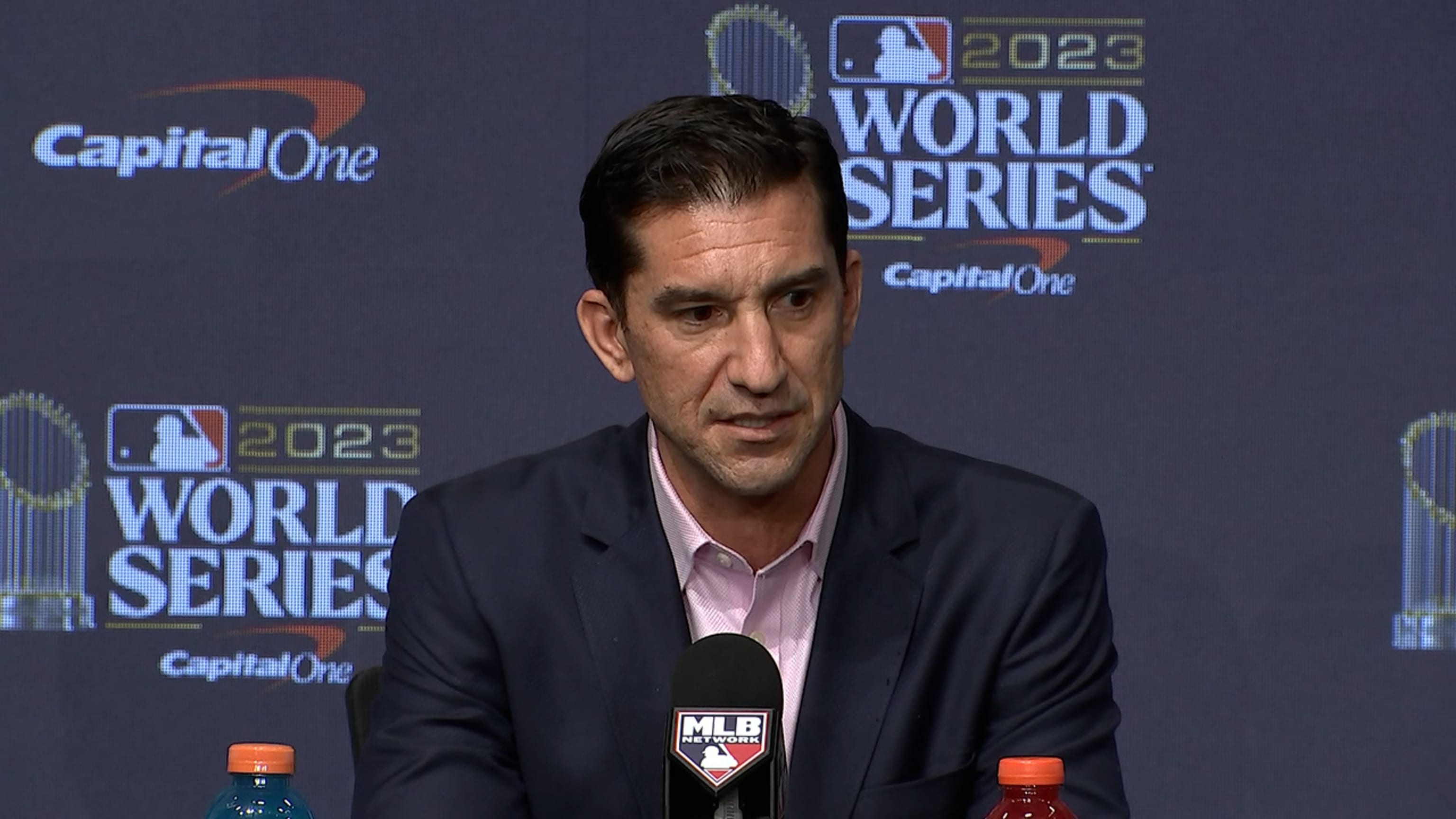
Mike Hazen on 2023 World Series
The other half of this compelling narrative unravels the tale of Nicole, a woman whose ardor for the game and her unwavering devotion to the team transcended the ordinary boundaries of a baseball spouse. Immersed in her husband’s work, she delved into the intricacies of ballgames, passionately invested in every outcome, and occasionally offering her insights on his decisions.
“The depth of her affection for the D-backs,” Manager Torey Lovullo reflects, “was genuine, fierce, and unwavering.”
As spectators of this World Series, baseball enthusiasts ought to acquaint themselves with Nicole’s story and embrace her indelible spirit. For the D-backs, an exuberant, tenacious, and unexpectedly triumphant squad, are not solely driven by the desire to secure a championship for their grief-stricken leader.
They are propelled by the fervor to claim victory for their greatest devotee.
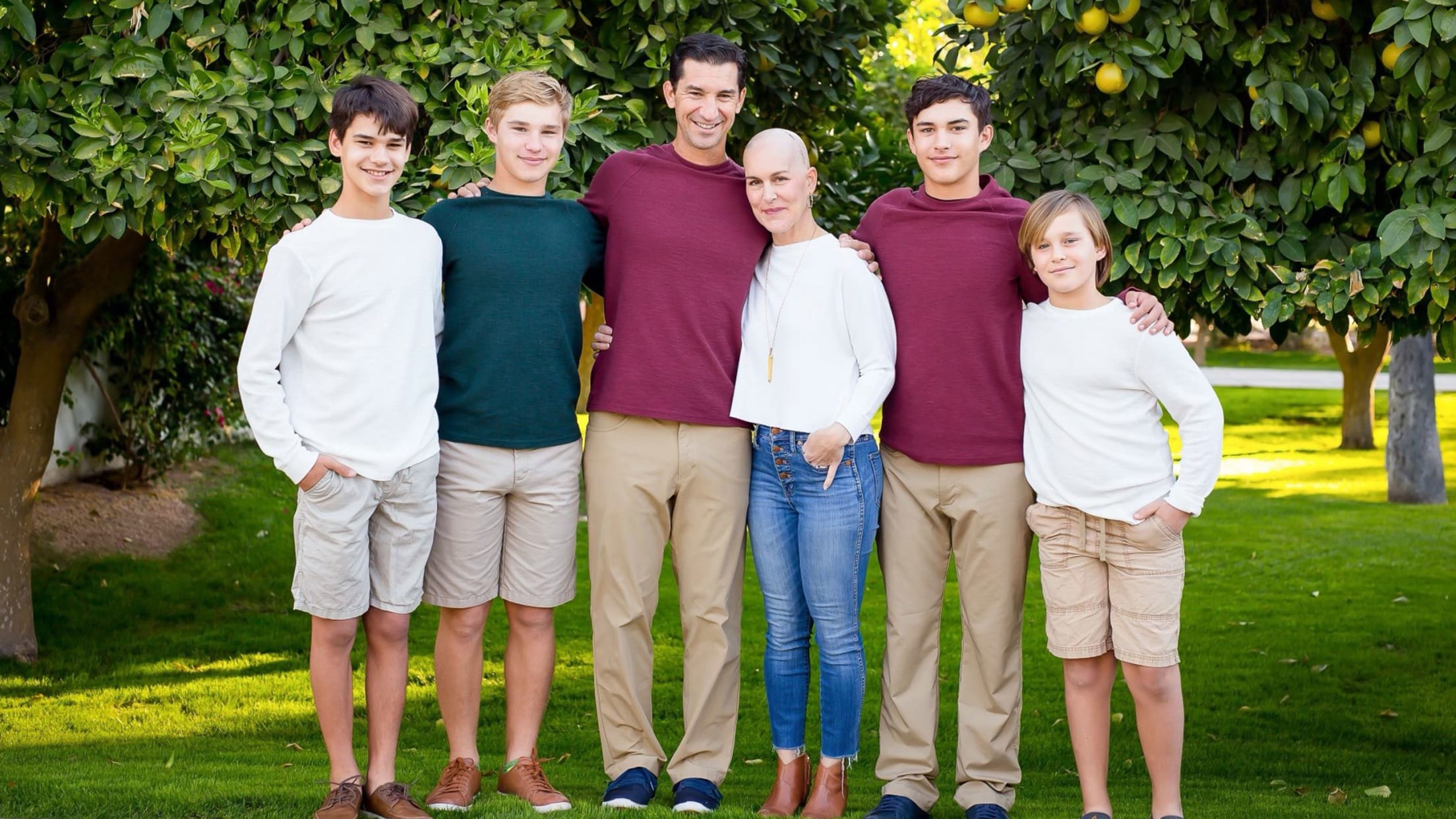
Certainly! Here’s a rewritten version:
The Ferrara family found themselves seated in prime positions in a lackluster venue—Cleveland Municipal Stadium, situated on the shores of Lake Erie. It had seen better days, and the glory days of the Cleveland Indians were distant memories, especially during the lackluster years of the 1980s.
Undeterred by the team’s performance, Rick and Phylis Ferrara, along with their children, Nicole and Ricky, remained unwavering fans. Season after season, they held steadfast season tickets in the front row, between home plate and first base. Rick, who passed away in 2019, had one steadfast rule that the family diligently followed: they never left an Indians game until it was over, even if the team was trailing by a wide margin.
Nicole Marie Ferrara, born on January 4, 1977, grew up on Cleveland’s east side. She attended Gilmour Academy for high school, pursued a bachelor’s degree in English and a teaching certificate from John Carroll University, and obtained a master’s degree in special education from Notre Dame College of Ohio. She began her career as a seventh-grade English teacher at Kenston Middle School, where she made numerous friendships.
Nicole had a remarkable ability to connect with people from all walks of life. She genuinely embraced others and maintained friendships from grade school, high school, and college. Her warm and welcoming nature endeared her to those around her.
On January 19, 2002, Nicole found herself faced with a dilemma. She was supposed to accompany someone to the Cleveland Orchestra, but she didn’t have romantic feelings for him and knew their relationship had no future. Seeking guidance, she called her mother, Phylis, to discuss the situation. Phylis advised her to let him down gently and cancel the date if she felt it was the right thing to do.
With her mother’s support, Nicole mustered the courage to have an honest conversation with the gentleman and gracefully decline the invitation. Instead, she decided to spend the evening out with a female friend, and they chose to visit the Winking Lizard Tavern in Cleveland Heights.
Coincidentally, just a short distance away, two young men from Boston found themselves engrossed in a football game. Mike Hazen, a budding scout for the Cleveland Indians at the time, and his roommate were avid football fans. On that particular night, they were watching the playoff clash between the New England Patriots and the Oakland Raiders in the AFC Divisional Playoff, a game that would later become known as the “Tuck Rule Game.”
As the game unfolded, Hazen and his roommate experienced a rollercoaster of emotions. They witnessed Tom Brady fumble the ball during a crucial drive, only to be overjoyed when referee Walt Coleman overturned the call due to the “tuck rule.” The Patriots retained possession, tied the game with a last-minute field goal, and ultimately emerged victorious in overtime.
Caught up in the excitement, Hazen and his roommate realized they had run out of beer. Determined to keep the celebration going, they decided to head out to the Winking Lizard, just a short distance away.
It was a twist of fate that brought Mike and Nicole together that night.
“I express gratitude to Walt Coleman every single day,” Mike fondly declares, acknowledging the role that the controversial “tuck rule” call played in their meeting.
And so, destiny aligned their paths at the Winking Lizard Tavern, where Mike and Nicole would meet and embark on a journey together that would shape their lives in ways they could never have imagined.
(Note: The original text was edited for brevity and clarity while maintaining the essence of the story.)
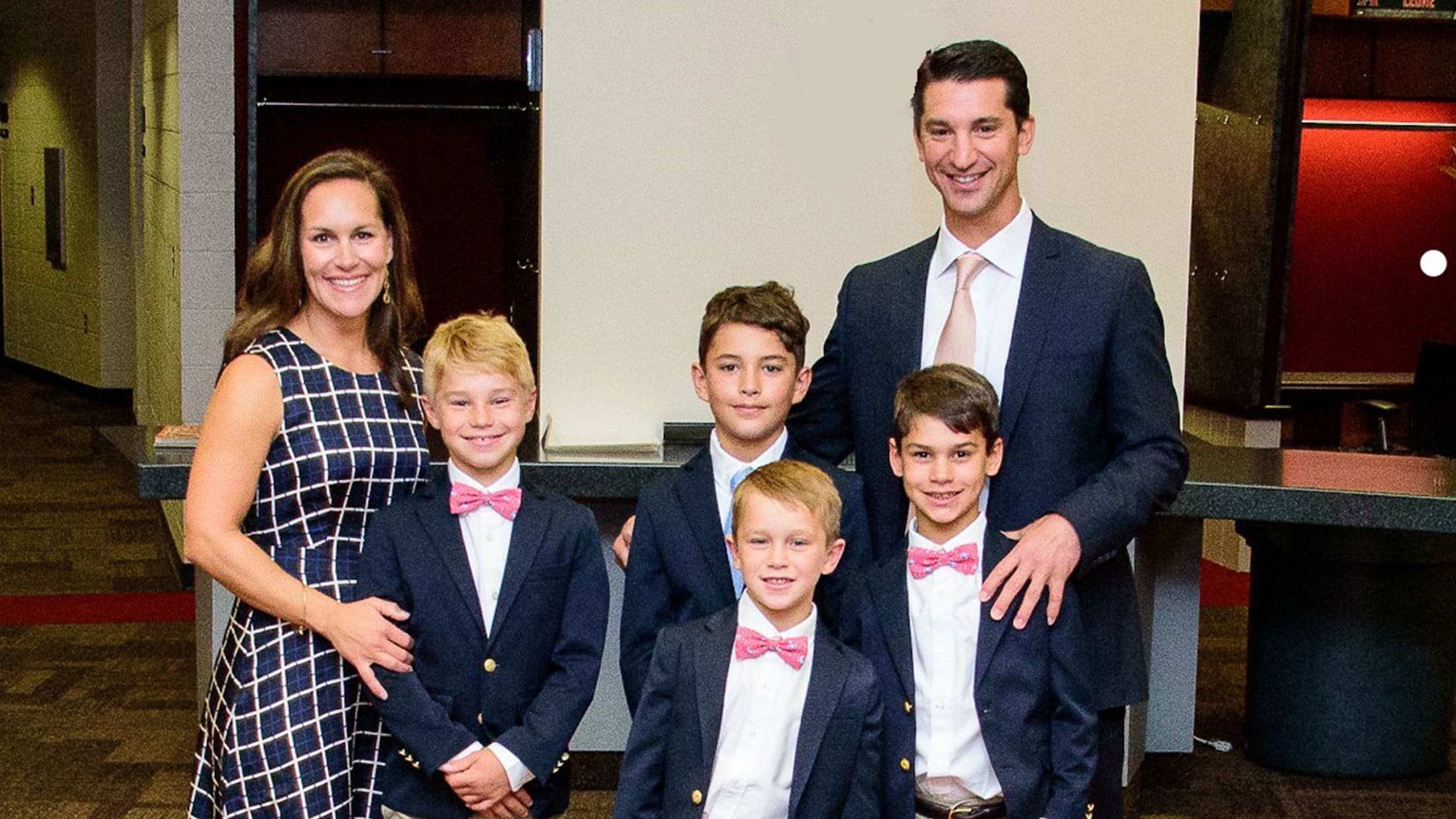
The two struck up a conversation and quickly confirmed that they were both hungry. There was a place just up the street called Panini’s, where you could get gigantic sandwiches covered in French fries and coleslaw at odd hours. An unhealthy start to a healthy relationship.
They shared a sandwich, and, from that moment on, they shared their lives.
“Mom,” Nicole said on the phone to Phylis the next morning, “you’re not going to believe it, but I met a really nice guy!”
“Mom,” Mike said on the phone that same day to his mother, Lois, a longtime educator, “I met this girl, and you’re really going to like her. She’s a teacher!”
Lois reflects now and laughs at how hard her son fell.
“It was instantaneous,” she says.
Says Mike: “We just connected on so many different levels. We just had so much in common and the values that we shared.”
In Nicole, Mike found a young woman who loved her family above all else, who wanted to be a mom more than anything else and who didn’t just tolerate his consuming relationship with sports but was as fervent a fan as he was. They were engaged within a year and a half, married a year after that and had their first son, Charlie, a year after that.
Life can move fast when you know what you want.
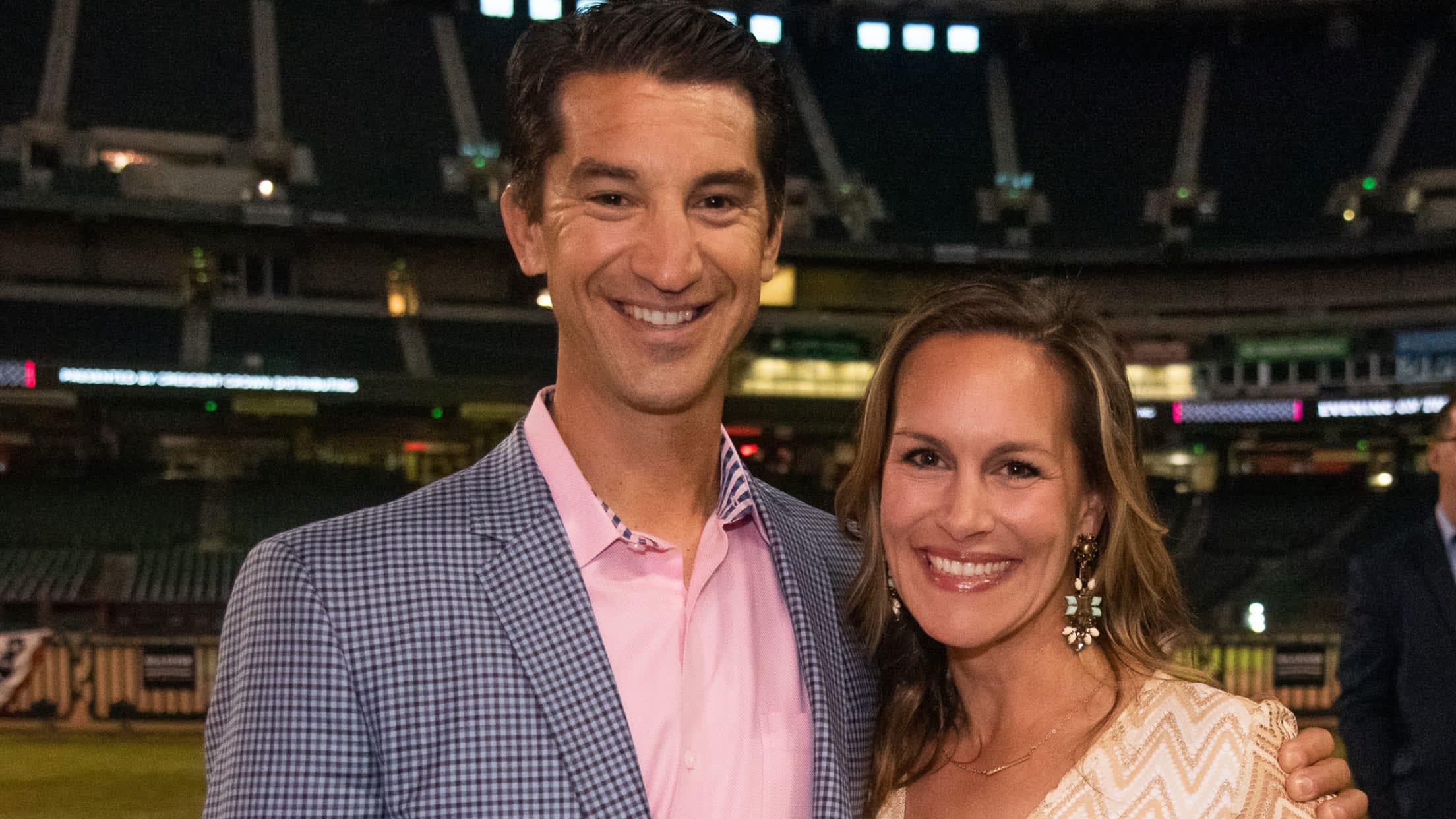
Mike’s career was moving fast, too.
A rising star in the baseball operations world, Hazen was hired by the Red Sox as director of player development in February 2006. He brought his budding family to his hometown. They packed a lot of life onto that moving truck, but Nicole left her lifelong Indians fandom and all those games at Municipal Stadium in the rearview mirror.
She was Boston-bound.
When the Red Sox faced Cleveland in the 2007 American League Championship Series, there was no conflict of interest for Mike’s Cleveland-born bride. The Sox beat the Indians in seven games, and Nicole relished the win.
“I’m telling you, man,” says Mike, “she was ride or die. Like, the Indians were out!”
That was Nicole’s way. Fiercely devoted to a loved one. And adaptable to the lucky yet, at times, ludicrous lifestyle that comes with a career in the sport with 162 games.
It can be a lonely existence when your spouse works nights, travels often and is emotionally and financially invested in a competitive, cutthroat enterprise. But not for Nicole. She made fast friends in Boston, where the Hazens spent 11 seasons and had three more sons — John, Teddy and Sam, all born about a year and a half apart.
“She would have had 10 kids,” Phylis says. “In fact, when she was pregnant with Sam, we were having dinner, and she was talking about having the fifth. She hadn’t even had the fourth yet!”
Nicole loved those kids fiercely, organized everything, juggled their schedules and her own. Every meal was a home-cooked meal. The Hazens did not eat out.
“I have other daughters with four kids,” says Lois, “and they always marveled at how she never complained, never said, ‘I’m by myself here, and I’m rounding up these boys and taking them places.’ Not to take away from what Michael did. He’s a great dad, too. But the bulk of it fell on Nicole’s shoulders, and she was just amazing at that job.”
She would have added to that job, if Mike hadn’t talked some sense into her. They were sitting on their living room couch one day. Mike had an appointment for a vasectomy.
Nicole started sobbing.
“I don’t know if I’m ready for this,” she said.
Mike laughs as he tells the story now, because the four little boys were all upstairs, shaking a crib, banging stuff around, making a racket in the family’s old home with thin walls and floors.
“Listen to them up there!” the drained dad pleaded. “We have to do this! We can’t have five kids!”
Great moms don’t surrender easily, but Nicole ultimately admitted that an infield’s worth of Hazen boys was enough.
“But that’s who she was,” Mike says. “Like, she loved being a mom more than anything else in the world. And I love that I came from a big family, so I really love that, too. And I don’t know … that was just our whole life. It was baseball, and it was our kids. That’s what we did.”
The Hazens put down real roots in New England. But Mike was such a key piece of the Boston ballclub’s successes that the baseball industry took notice. When he was offered the opportunity in the fall of 2016 to become the executive vice president and general manager of the D-backs, he was excited … but slightly sheepish.
“So,” he said to Nicole, “we’re going to move to Arizona?”
Nicole wasn’t sheepish at all.
“Hell, yeah, we’re moving to Arizona!”
They moved to Arizona.
This time, they had four growing boys with them and no family ties on which to lean. It didn’t matter. Nicole built it all back up again, made faithful friends with moms at school and wives at work — especially Lovullo’s wife, Kristen — and became an instant favorite among the employees at Chase Field.
“She was critical for us,” team president and CEO Derrick Hall wrote in an e-mail. “She never missed a pitch and was engaged with our manager, our assistant general managers, our players’ families. While Mike would get crabby and intense at times in a season, Nicole would provide the smile and positivity. She wanted to win more than anyone but would keep it all in perspective for her family.”
As was the case when she was a kid in Cleveland and a Boston transplant, Nicole threw herself into her “hometown” team.
Like any fan, she had her favorites — specifically Paul Goldschmidt, David Peralta, AJ Pollock, Jeff Mathis from the 2017 team that won the NL Wild Card Game and Merrill Kelly from the current club. And though she supported her husband fully, you’d better believe there were times when the devoted D-backs fan put him on blast and made him feel like he was on a sports talk radio show in his own home.
Never more than when Mike traded Goldschmidt to the Cardinals before the 2019 season.
“What are you doing?” Nicole asked Mike incredulously.
Mike began trying to explain the trade from the front-office perspective.
Then it hit him.
“You don’t care why I did this!” he said with a laugh. “You’re just mad at me that I traded Goldy!”
There’s this gorgeous photo of Nicole from the 2017 postseason. She’s in the stands at Chase Field, among the faithful, waving a Sedona red rally towel and a D-backs T-shirt with a loving cartoon depiction of her husband’s face and his name. She’s radiant, full of life.
It’s a perfect representation of Nicole. Devoted fan. Devoted wife. Beautiful, beaming soul.
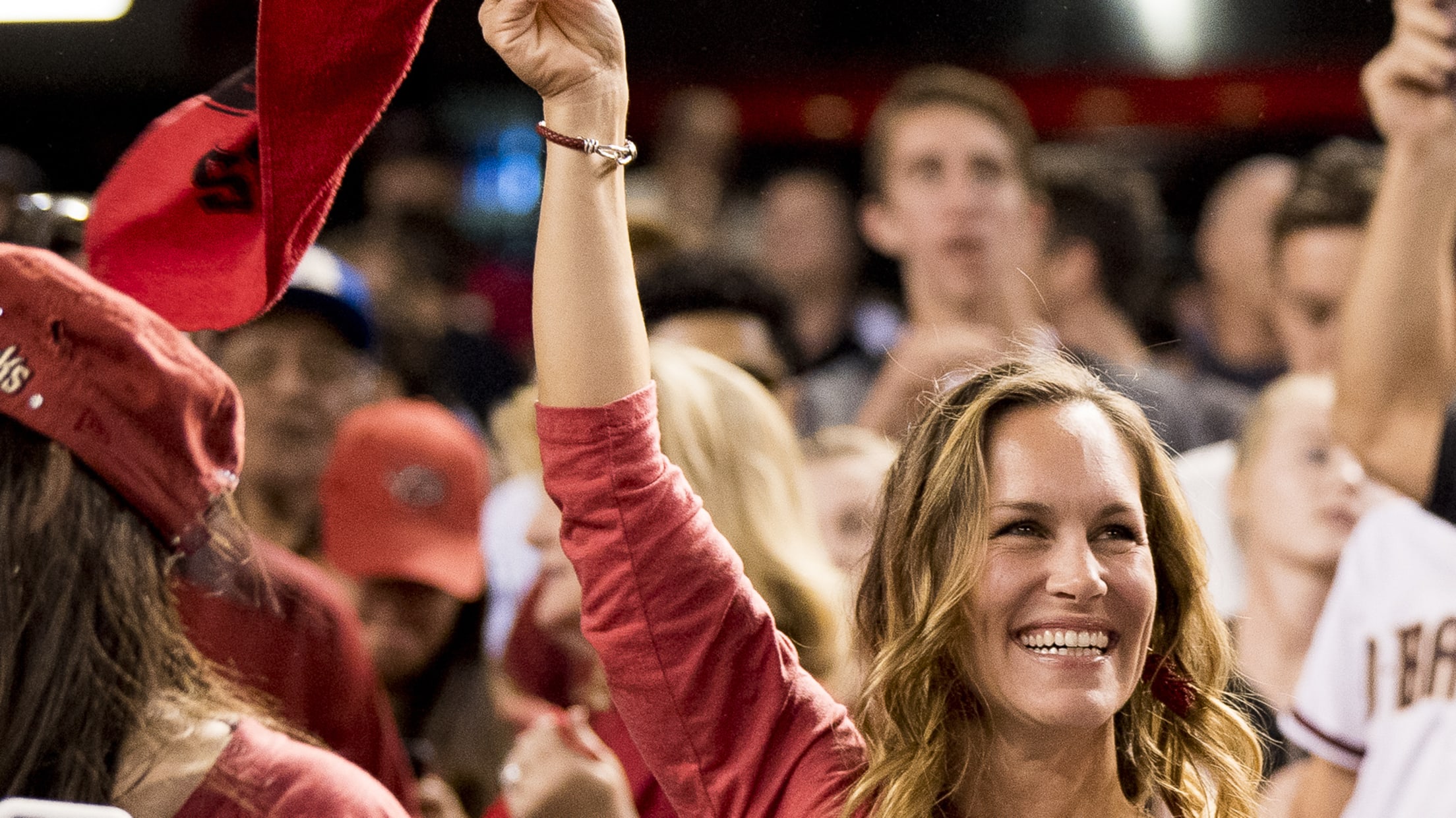
In this heart-wrenching chapter of their story, the events become difficult to tell and even harder to read.
It was May 2, 2020, a time when our lives were turned upside down, and remote work became the norm. Mike Hazen, standing in his backyard, spoke on the phone with Ken Crenshaw, the D-backs’ director of medical services. Little did he know that Nicole, his wife, was approaching him with an unsettling expression on her face, accompanied by strange noises.
His initial thought was that she might have been bitten by a scorpion or something of the sort. But as Nicole drew nearer, Mike’s worry intensified. He brought Crenshaw onto a FaceTime call to show him Nicole’s distressed appearance.
“Get off the phone and call 911,” Crenshaw urgently advised.
An ambulance arrived swiftly, and Nicole was placed on a stretcher and rushed to the emergency room. Initially, doctors suspected she may have suffered a stroke. However, a CT scan revealed the presence of spots on her brain.
For over a month, Nicole underwent a battery of tests to assess the extent of her condition and determine the cause of her sudden seizures. The spots were located in a particularly sensitive area on the left side of her brain, making her doctors hesitant to perform a biopsy. Eventually, it became necessary, and the results confirmed the devastating diagnosis: Nicole had glioblastoma, an aggressive, treatment-resistant form of brain cancer.
Glioblastoma has no known cure. Treatment options include surgery to remove the tumor, radiation therapy, chemotherapy, and participation in clinical trials. The average survival time for glioblastoma patients, as stated by the National Brain Tumor Society, is merely eight months, with a five-year survival rate of only 6.9%.
In Nicole’s case, following a craniotomy to remove as much of the tumor as possible, followed by a six-week course of chemotherapy and radiation, there seemed to be a glimmer of hope. However, her condition deteriorated at various points in 2021, necessitating two additional craniotomies and three different drug therapies. By October 2021, the risks associated with further surgery were too great, and over the next ten months, Nicole’s body betrayed her. She lost function in her hands, then her ability to walk, speak, and swallow.
On August 4, 2022, shortly after celebrating their 18th wedding anniversary, Nicole passed away. Her loss was devastating, not only for her family but also for the wider D-backs family.
But in this moment, let us focus not on the cancer that claimed Nicole’s life, but on the indomitable spirit she displayed throughout her unwinnable battle.
“She was exceptional,” Lois reflects. “The bravest, most positive person I have ever met. She never complained. Never. She taught me how I would want to conduct myself if I were ever sick.”
When Hall’s wife, Amy, delivered food to the Hazen home, Nicole, unable to speak, greeted her at the door with a tight hug and tearful sobs. Then, she wiped her cheeks, stepped back, and smiled.
That, my friends, is courage.
“She didn’t need to say a thing,” Hall writes.
The community rallied around the Hazen family. As is often said in such tragic circumstances, many people offered their assistance, saying, “If there’s anything I can do to help…”
During the D-backs’ grueling 110-loss season in 2021, a player conveyed that exact sentiment to Mike, asking him to pass along the message to Nicole. Mike knew she wouldn’t take the player up on the offer, but he mentioned it to her one day while helping her get dressed.
“Hey,” Mike said, “[Anonymous D-back] asked if there’s anything he can do.”
“You know what he can do?” Nicole responded. “[Expletive] play better!”
If Nicole had one complaint during her battle, it was that she couldn’t fulfill her duties as an eighth-grade English teacher at St. Francis Xavier Elementary School to the standard she desired, particularly with the school still conducting remote learning when she received her diagnosis.
Following her second craniotomy, Nicole developed severe apraxia of speech. She would stutter and struggle to find her words. Sometimes, after concluding a virtual learning session with her students, she would close her computer screen and break down in tears.
Mike would attempt to console her.
“Listen, I have no idea how much this sucks and what you’re going through,” he told her one day. “But you’re teaching these eighth-grade kids empathy. I know you want to teach them English literature, and it’s not going as planned. But think about what they’re witnessing—the effort you’re making for them. They’re eighth graders, so they probably don’t fully appreciate it right now. But maybe someday they will.”
And they will.
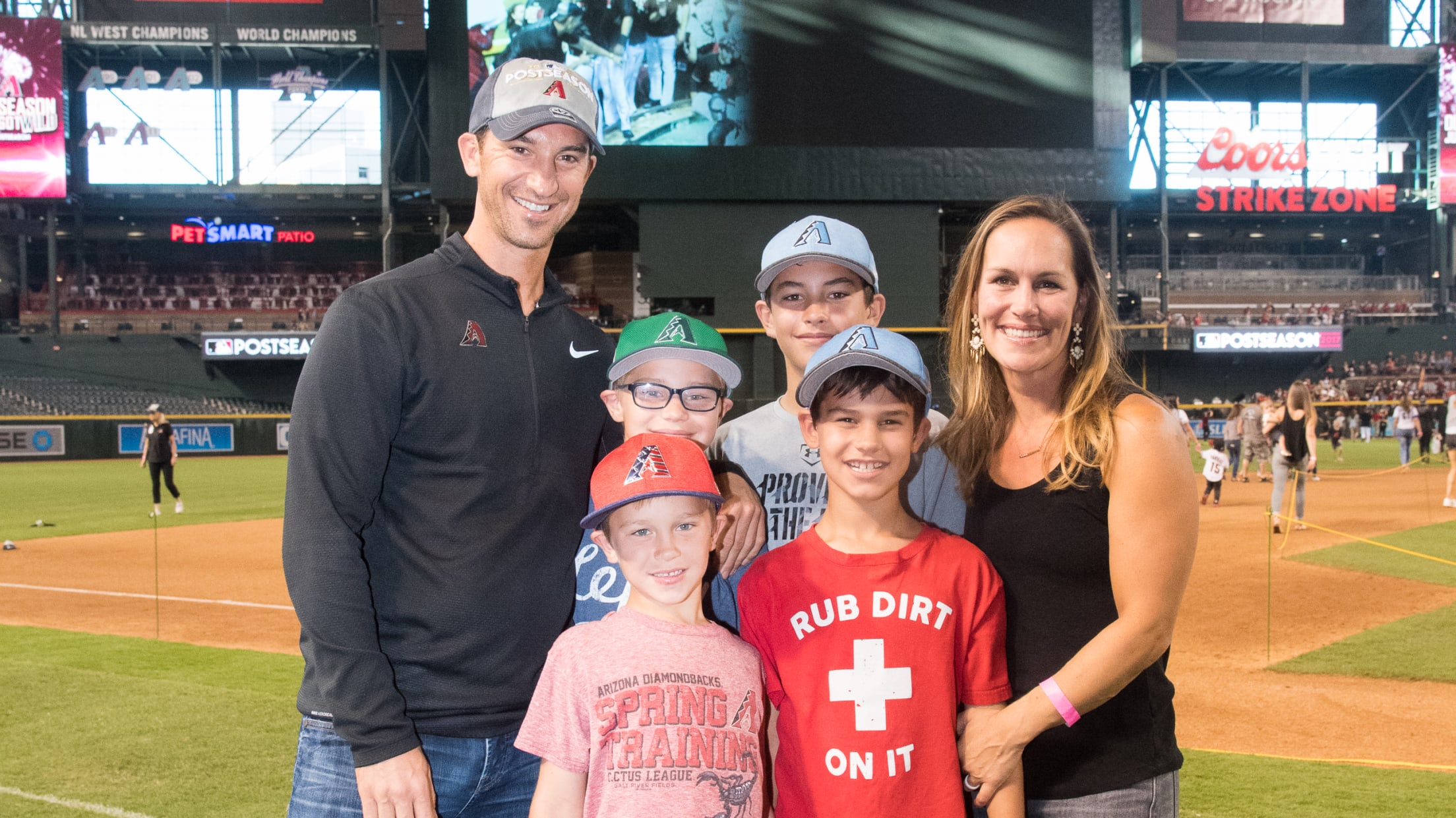
In the visitors’ dugout at Arlington’s Globe Life Field, Mike Hazen shares the story of his beloved late wife. It’s the eve of Game 1 of the World Series, before the stadium fills with the energy of players practicing and reporters conducting interviews. Mike, at the pinnacle of his career, takes this moment to open up to a journalist.
“One thing she always said was that she never wanted to be forgotten,” Mike reveals. “And I understand why she felt that way. It wasn’t just about not being forgotten publicly. She didn’t want to miss out on the journey we were on.”
With his heart laid bare in the dugout, Mike tells his wife’s story so profoundly because he knows she should be here, experiencing this World Series. And as he bares his soul, there is no doubt that she is present.
She is also in the stands, alongside Charlie, John, Teddy, and Sam. She is with Phylis, Lois, and other family members who attend every game of this World Series run.
“She orchestrated this for me,” Phylis remarks, “and for all the people who supported her because that entire community took care of her. I think she’s the driving force behind all of this, for everyone it means so much to.”
The stands are filled with noise during these games, the roars sometimes overwhelming. Yet, even in the most intense moments, Phylis swears she can hear her daughter’s voice in her ear, urging her to sit down and relax. She can hear her laughter.
Maybe Phylis is right. Perhaps Nicole is watching over them.
In Game 1 at Globe Life, the D-backs suffered a devastating blow in the late innings, surrendering a game-tying home run to Corey Seager in the bottom of the ninth and an Adolis García walk-off blast in the bottom of the 11th. However, the following night, they rallied back, fueled by seven magnificent innings from Merrill Kelly.
Nicole’s favorite player.

Merrill Kelly’s dominant outing
Mike arrived home from work one day toward the end of his wife’s life to find Nicole supine on the sofa, as had been the case on countless occasions throughout their marriage. Cancer was on the verge of claiming her life. She was rendered nearly immobile and unable to communicate verbally.
“Did you attend today’s game?” With the answer already in mind, Mike inquired.
She had undoubtedly viewed the event. The day was one in which the D-backs emerged victorious, and it was a contest in which Kelly had dominated his opponent.
A nod from Nicole followed.
“What about Kelly, your son?” Mike uttered in delight.
Nicole then grinned.